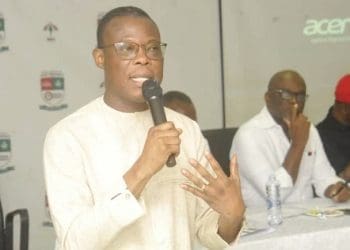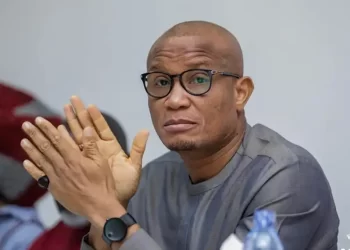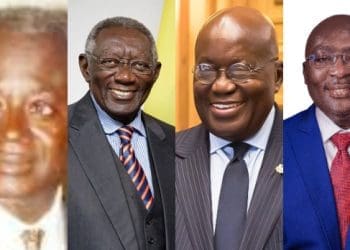The suspension of Ghana’s Chief Justice, Gertrude Araba Esaaba Sackey Torkornoo, has escalated into an international legal and diplomatic storm.
Two influential global legal bodies — the Bar Council of England and Wales and the Commonwealth Lawyers Association (CLA) — have issued a joint statement demanding her immediate reinstatement.
Their intervention has cast Ghana’s judicial independence under an intense spotlight, raising questions about the country’s adherence to constitutional safeguards, due process, and the Commonwealth’s core principles.
The demands from these organisations are direct and uncompromising.
First, they insist that the Chief Justice be restored to office without delay, describing her removal as unconstitutional and injurious to the rule of law.
They also call on the government to guarantee a fair and transparent disciplinary process, should any legitimate charges exist, ensuring her legal team has full access to all proceedings. Further, they urge the establishment of clear procedural rules for any such processes, including strict timelines for the investigating committee to conclude its work and issue its decision.
In their view, anything less risks deepening a crisis of confidence in Ghana’s judiciary.
A catalogue of breaches
The statement by the Bar Council and the CLA lays out a troubling sequence of alleged constitutional and procedural breaches.
At the heart of their concern is the claim that the President and the Executive have violated the 1992 Constitution.
Under the Constitution, a Justice of the Superior Court may only be suspended or removed for stated misbehaviour, proven incompetence, or inability to perform official duties due to physical or mental incapacity.
The organisations contend that none of these criteria have been satisfied in Chief Justice Torkornoo’s case.
They also accuse the investigating committee of undermining due process.
Rather than requiring petitioners to appear personally and be subjected to questioning, the committee allowed them to rely on witness testimony.
This, they argue, deprived the Chief Justice of a fair opportunity to challenge the claims directly.
Compounding the problem, they allege, was the treatment of her legal representative, who was reportedly not accorded the respect and professional courtesy due under both Ghanaian law and the Latimer House Principles — a widely recognised Commonwealth standard for ensuring judicial independence and fair trial rights.
Another key grievance is the delay in resolving the matter.
The bodies say the drawn-out nature of the proceedings amounts to an unreasonable delay that undermines public trust in the judiciary.
When the subject of a disciplinary investigation is the head of the judiciary itself, they argue, such delays are not just procedural missteps — they are corrosive to the integrity of the entire justice system.
Ghana’s Commonwealth commitments under scrutiny
The case has international implications because Ghana, as a Commonwealth member, has pledged to uphold specific governance and judicial standards.
The Commonwealth Charter emphasises the importance of “an independent, impartial, honest and competent judiciary” as a cornerstone of democratic governance and the rule of law.
The Latimer House Principles, agreed upon by Commonwealth heads of government, go further by stipulating that judicial disciplinary processes must be handled by independent bodies and include safeguards such as the right to full information on charges, the right to be represented at hearings, and the right to mount a complete defence.
By suspending the Chief Justice under contested circumstances, the Bar Council and CLA suggest that Ghana risks breaching these commitments.
Their statement frames the matter not merely as a domestic constitutional dispute, but as a test case for Ghana’s compliance with its international obligations.
Political-legal battle
Chief Justice Torkornoo, sworn in as Ghana’s 15th Chief Justice in June 2023, is widely respected in legal circles for her meticulous judicial reasoning and her focus on judicial reforms.
Prior to her appointment, she served on the Supreme Court, where she was involved in landmark rulings on electoral disputes, constitutional interpretation, and commercial law.
She has championed greater transparency in court processes and advocated for modernising case management systems — initiatives that have not always been welcomed by entrenched interests.
Her suspension on 22 April 2025 stunned both the legal profession and political observers.
The official reasons have not been fully disclosed, but leaked accounts suggest that petitions alleging administrative missteps in judicial appointments and case assignments were brought before the President.
The decision to act on these petitions has been criticised for bypassing standard verification procedures.
Judicial independence, executive power clash
To many legal analysts, the episode reflects a deeper institutional tension between Ghana’s judiciary and executive.
The 1992 Constitution was crafted to insulate the judiciary from political interference, particularly after Ghana’s history of executive overreach during military rule.
Yet, the mechanism for disciplining superior court judges still requires the President to initiate proceedings, raising the potential for political influence in cases involving judicial leadership.
In this instance, the Bar Council and CLA’s intervention suggests that the line between legitimate constitutional procedure and executive overreach has been crossed.
The optics are especially troubling because the head of the judiciary is the guardian of constitutional interpretation — removing her under disputed circumstances risks creating the perception of an executive branch willing to weaken judicial independence for political convenience.
Implications
The stakes extend beyond the legal profession.
Ghana has positioned itself as a stable democracy in West Africa, attracting significant foreign investment and international partnerships.
Judicial independence is a key factor in investor confidence, particularly in sectors that rely on impartial dispute resolution, such as mining, telecommunications, and finance.
If perceptions grow that the judiciary is vulnerable to political manipulation, the consequences could be economic as well as political.
International credit rating agencies and business risk consultancies factor governance stability into their assessments. A perception of weakened rule of law could feed into country risk ratings, affecting Ghana’s borrowing costs and investment inflows.
A growing domestic backlash
Within Ghana, the suspension has provoked sharp reactions from civil society organisations, bar associations, and political commentators.
The Ghana Bar Association, while initially measured in its response, has increasingly called for transparency in the proceedings.
Advocacy groups warn that if the matter is not handled within the strict bounds of the Constitution, it could set a dangerous precedent for politically motivated removals of judicial officers.
In the media, the case has become a flashpoint for debates about the balance of power among Ghana’s constitutional organs. Editorials have warned that the erosion of judicial independence would undermine the very checks and balances designed to prevent authoritarian drift.
International pressure mounts
The Bar Council of England and Wales and the CLA are not fringe observers.
The Bar Council represents barristers in one of the world’s most respected legal systems, and the CLA is a global network of lawyers from more than 54 countries.
Their joint intervention is rare and signals the seriousness with which they view the matter.
Their statement reminds Ghana that judicial independence is not merely a domestic concern but a shared Commonwealth value. “An independent, impartial, honest and competent judiciary,” they noted, “is integral to upholding the rule of law, engendering public confidence, and dispensing justice.”
The language leaves little doubt that they consider the current situation a departure from these standards.
What happens next?
The Ghanaian government now faces a choice: address the concerns head-on by reinstating the Chief Justice and ensuring a constitutionally compliant process, or risk deepening an international and domestic crisis.
With the ECOWAS Court case pending, every delay in resolving the matter could strengthen perceptions that due process is being subverted.
Observers say the outcome will be a litmus test for Ghana’s commitment to the principles enshrined in its own Constitution, as well as its international legal obligations.
A failure to resolve the matter in line with these standards could resonate far beyond Accra — in courtrooms, boardrooms, and diplomatic circles across the Commonwealth and beyond.
For now, the Bar Council and CLA’s demands remain on the table, their message unambiguous: restore the Chief Justice, follow the Constitution, and protect the independence of the judiciary — or risk irreparable damage to Ghana’s democratic reputation.













